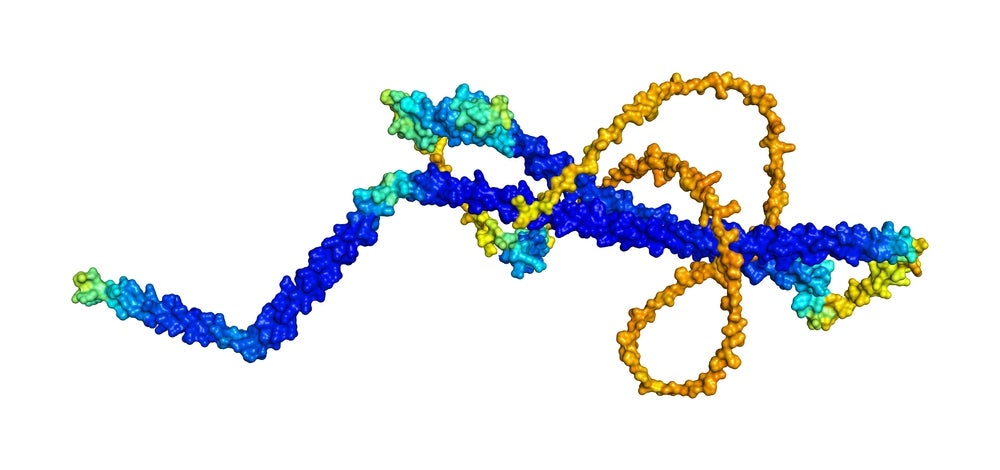Quantum computers could one day solve complex healthcare supply chain problems and even design new medicines from scratch. In the meantime, experts expect a slow trickle of new advances in the emerging field.
Quantum computing relies on the theories of quantum mechanics to solve specific types of problems that are too complex for traditional computing. In drug development, the first useful applications will likely be individual optimization problems, explains Maximillian Zinner, a quantum computing researcher at Witten/Herdecke University, Germany. This could include optimizing supply chains for large clinical trials or improving drug pricing models, although these use cases are likely still years away.

Discover B2B Marketing That Performs
Combine business intelligence and editorial excellence to reach engaged professionals across 36 leading media platforms.
Later on, however, the quantum computing field has more ambitious goals. In 10–15 years, Zinner says, quantum computers could achieve the “holy grail” of drug development—testing and developing new medications in silico, meaning through computer modeling.

Still, there are many development hurdles before quantum computing’s real-world applications catch up to the field’s growing hype. “Do not expect a big bang to happen that suddenly causes everything in healthcare to be powered by quantum computing,” explains Dr. Leonard Fehring, Zinner’s colleague at Witten/Herdecke University. “These advances take time.”
Replacing bits with qubits
Quantum computing works by replacing the bits in classical computing with quantum bits known as “qubits.” While bits can only hold the binary values of 0 or 1, qubits can exist as a superposition of 0 and 1. This means qubits can exist as multiple states of 0s and 1s at the same time, made possible by a feature of quantum mechanics called entanglement.
In theory, quantum computers could look at all the possible states or outcomes of a problem and analyze these simultaneously, explains Robert Penman, an analyst at GlobalData, the parent company of Clinical Trials Arena. In practice, however, building a functional quantum computer is a challenging and resource-intensive endeavor.

US Tariffs are shifting - will you react or anticipate?
Don’t let policy changes catch you off guard. Stay proactive with real-time data and expert analysis.
By GlobalDataNotably, it is difficult to keep individual qubits stable for enough time to perform a calculation, Penman says. Most quantum computing systems in development use atoms or ions that must be cooled to extremely low temperatures in a laboratory setting. Meanwhile, scaling quantum computers is also a significant challenge, as adding more qubits to a system increases the risk of errant signaling, Penman adds.
Still, even small-scale quantum computers could provide added value in the short term while large-scale commercial systems remain in development, Fehring notes. “In the next five to 10 years, there will be a gradual shift in the healthcare industry,” he says. “We will start seeing quantum computing solving problems in a handful of very specific use cases.”
From supply chains to protein folding
In drug development, there are three main areas where quantum computing is likely to add the most value. First, quantum computing could outperform classical computing in solving difficult optimization problems, Zinner says. Quantum computers can use qubits to simultaneously measure all possible values of a complex function, identifying the maxima and minima associated with the lowest costs and highest efficiencies. As soon as the mid-2020s, quantum computing could solve small optimization problems in areas like pharmaceutical supply chains or clinical staffing models, Fehring notes.
Second, quantum computing could simulate electrons within a molecule, effectively modeling protein folding and leading to the development of new drugs, Fehring adds. At the molecular level, chemicals operate according to the laws of quantum physics, and their interactions typically involve complex probabilities that today’s supercomputers cannot process. Overall, it will likely take 10–15 years for quantum computers to effectively design and test new therapeutic molecules in silico, Zinner notes. “In the end, creating new molecules from scratch is just a very complex optimization problem,” he says.
Third, an application known as quantum computing machine learning could improve the accuracy of existing artificial intelligence (AI) approaches, Fehring says. This includes finding patterns in medical imaging data and electronic health records, as well as increasing the accuracy of natural language processing models such as BioGPT.
Still, quantum computing is not essential for advancing machine learning, which can be processed with classical computers. Instead, Fehring says quantum computing could act as a booster for AI programs, aiding in some specific statistical calculations to improve overall processing power.
Above all, quantum computers are best positioned to complement, not replace, the work of advanced classical computers. “Quantum computers are not general-purpose machines,” Penman says. “They’re equipped to solve very specific types of problems at a very high level.”
New investments in quantum computing
Although quantum computing is yet to realize commercial benefits, many pharma companies have begun investing in the new technology with long-term goals in mind, Penman says. Over the past decade, there has been a sizeable 70% increase in patent filings related to quantum computing among pharma companies and institutions, according to GlobalData’s Patent Analytics Database. GlobalData’s database compiles and searches publicly available patent filings, confining the search to organizations with a major focus on the pharma sector.
According to the same GlobalData filings data, the biggest pharma industry players that have submitted quantum computing patents are Merck, Roche, Johnson & Johnson, and Amgen. Rounding out the list of top players is Thermo Fisher Scientific, the parent company of the contract research organization (CRO) PPD.
Despite the increase in patent activity, there is still some skepticism that pharma will quickly adopt the new technology once it becomes commercially viable. Historically, the healthcare industry has been slow to implement new technologies, notes Eric Perakslis, chief science and digital officer at Duke Clinical Research Institute. During the Covid-19 pandemic, for example, few companies turned to newer technologies like blockchain to combat drug shortages, despite their use in other industries. “It’s sometimes a head scratcher to me when new technologies come out and the healthcare industry doesn’t take advantage,” Perakslis says.
A future quantum winter?
Quantum computing could eventually shift the landscape of drug development, but the emerging technology still has key limitations. For one, quantum computing machine learning will not solve many of the underlying problems with existing approaches to AI in healthcare, including patient privacy and data bias concerns, Zinner says. Additionally, many companies could struggle to employ a workforce with domain expertise in both quantum computing and fields like computational chemistry or supply chain logistics, he adds.
Meanwhile, quantum computing could also face growing competition from classical AI and machine learning programs, Penman notes. Already, Alphabet’s AI program AlphaFold has managed breakthroughs in modeling protein folding without the use of quantum computing. “If AI and classical machine learning are delivering advances that we thought were only possible from quantum computers, then some of the funding for quantum computing will dry up,” Penman says. “It’s possible we will see a quantum winter.”

Looking ahead, the ebbs and flows of progress in quantum computing will ultimately prove difficult to predict, Perakslis says. “I’m a big believer in the Gartner hype cycle; you make some advances, and then you plateau,” he notes.“If quantum computing is what gets us to the next plateau, that doesn’t mean we’re done; it just means we’ve taken the next measurable step in science.”





